Key Considerations When Choosing a Metal Stamping Partner
Leave a CommentMetal stamping is a manufacturing process that employs a specialized press, as well as tool and die set, to form sheet metal into a specified shape and size. Industry professionals employ metal stamping processes to produce a wide range of industrial parts and products. When looking for a metal stamping partner, there are several considerations to bear in mind. You’ll want to vet a company that offers the greatest value for your project.
The following piece provides an overview of some of the key factors to consider when choosing a metal stamping partner. In addition to metal stamping capabilities, qualities such as a broad selection of other fabrication and finishing services, extensive industry experience, and high quality standards are indicative of a high-value partner.
Partner vs. Supplier
When sourcing a metal stamping company, it is important to know the difference between a supplier and a partner. While a supplier has the metal stamping capabilities necessary to fulfill the project, a partner offers the required metal stamping services and more. The latter should be able to assist with all project needs, including design and engineering assistance, manufacturing, and/or finishing services. These offerings help shorten production timelines and reduce production costs.
Advanced Stamping Capabilities
While specialization is good, narrow specialization is not. For example, some projects may not overtly indicate which metal stamping process is appropriate. A metal stamping company that offers a wide range of in-house stamping capabilities—e.g., bending, blanking, coining, piercing, etc.—is better able to accommodate such projects. However, for projects that required advanced metalworking—i.e., deep draw stamping—it is essential to work with a specialist to ensure greater precision and accuracy in the finished parts.
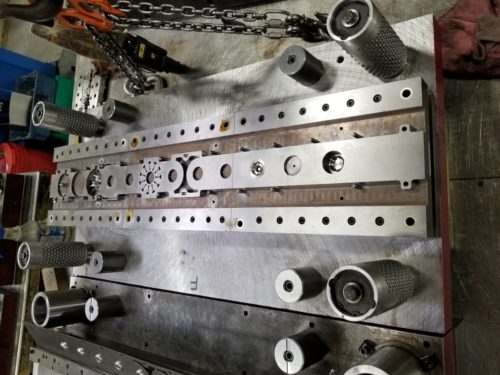
Tooling Design and Development Services
Metal stamping companies that maintain an in-house tooling design and development team have greater control over part and process quality. As they have the ability to create custom tooling for every project, they are better able to ensure production proceeds as intended.
Secondary Services
As indicated above, a metal stamping partner should ideally offer more than just metal stamping capabilities. These secondary operations—provided in-house or through a network of reliable vendors—allow clients to receive a full-service stamping solution. Some of the other fabrication and finishing processes a partner may offer include:
- Heat treatment
- Forming and welding
- Painting and electrocoating
- Passivation and sterilization
- Pre-plating and post-plating processes
- Precious and non-precious metalwork
- Specialty edge cleaning and deburring
- Assembly
- Kitting & Custom Packaging
Industry Experience
Regardless of whether you [the customer] are in the aerospace, automotive, construction, appliance, or other industry, any potential metal stamping partner should have experience producing parts and products for your industry. This quality ensures the partner is familiar with any requirements or restrictions specific to the industry (e.g., using FDA compliant materials for medical devices).
Production Capacity
Both the type of equipment employed and the lead time for raw material orders estimated affect a company’s production capacity. A metal stamping partner should utilize metalworking equipment that allows them to complete projects efficiently without sacrificing precision or accuracy.
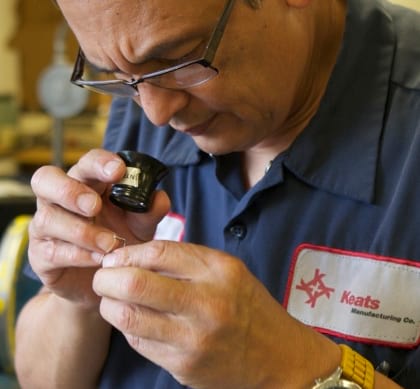
Quality Management
The International Organization for Standardization (ISO) develops and publishes standards aimed toward ensuring the quality, safety, and efficiency of products and services. The ISO 9000 family of standards focuses on quality management principles regarding a company’s products and processes. Companies certified to ISO 9001 comply with the ISO’s criteria for quality management systems, meaning they are knowledgeable about best practices regarding quality and sustainability, and are actively and adequately working to integrate them.
Metal Stamping Solutions From Keats Manufacturing
At Keats Manufacturing Company, we are an ISO- and ITAF-certified manufacturer of high-quality custom metal stampings, wire forms, and assemblies. Equipped with over 60 years of metalworking experience and three state-of-the-art facilities, our team has the knowledge, skills, and tools to meet virtually any small metal stamping need, ranging in size and design complexity. Our metal stamping capabilities include:
- Bending
- Blanking
- Coining
- Curling
- Drawing
- Embossing
- Piercing
- Punching
We also offer in-house tooling design and development services, which allows us to create die and tools sets that achieve up to ±0.0005 inch tolerances throughout a metal stamping project.
The industries we serve include:
- Aerospace
- Appliances
- Automotive
- Communications
- Construction
- General manufacturing
- Medical and medical devices
- Military and defense
- Power distribution
- Renewable energy
To learn more about our metalworking capabilities or partner with us on your next project, contact us or request a quote today.


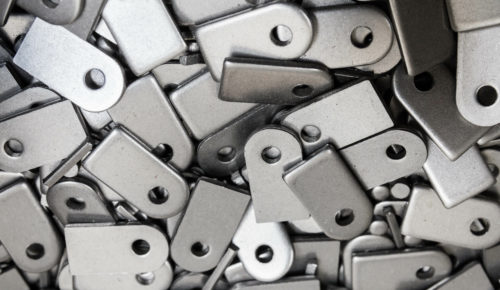 In the
In the 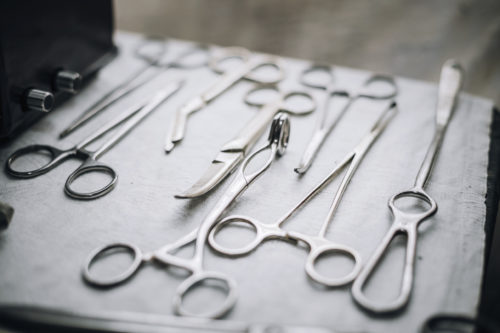 Similar to the aerospace industry, the
Similar to the aerospace industry, the 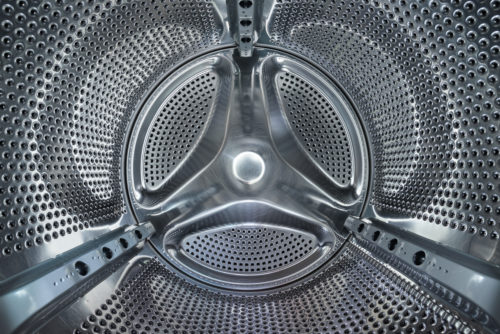 Precision metal stampings are found in a wide range of
Precision metal stampings are found in a wide range of 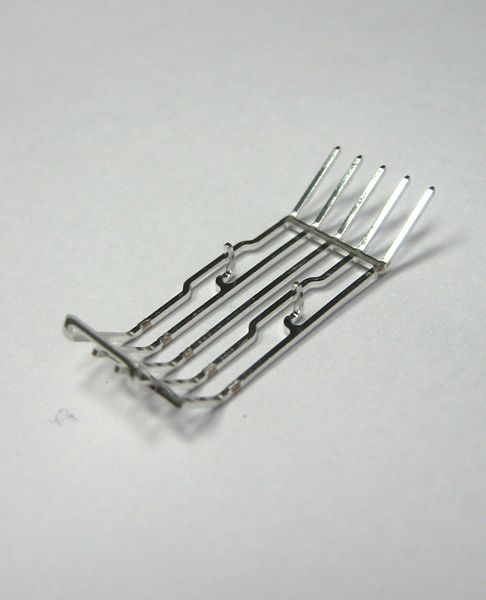
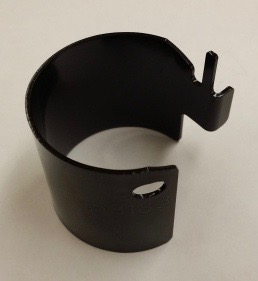 An automotive manufacturer provided Keats with a print and a .DWG AutoCAD file that contained specifications of a fuel injection steel shield that was required for use in automotive engines.
An automotive manufacturer provided Keats with a print and a .DWG AutoCAD file that contained specifications of a fuel injection steel shield that was required for use in automotive engines.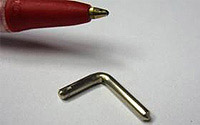 One client came to Keats with a need for terminals to be used in sensors for various automotive parts. Starting with copper alloy wires with a thickness of 0.082”, the Keats engineering team leveraged our in-house AutoCAD and tooling machinery to achieve tolerances of 0.001” to manufacture 25,000 terminal
One client came to Keats with a need for terminals to be used in sensors for various automotive parts. Starting with copper alloy wires with a thickness of 0.082”, the Keats engineering team leveraged our in-house AutoCAD and tooling machinery to achieve tolerances of 0.001” to manufacture 25,000 terminal